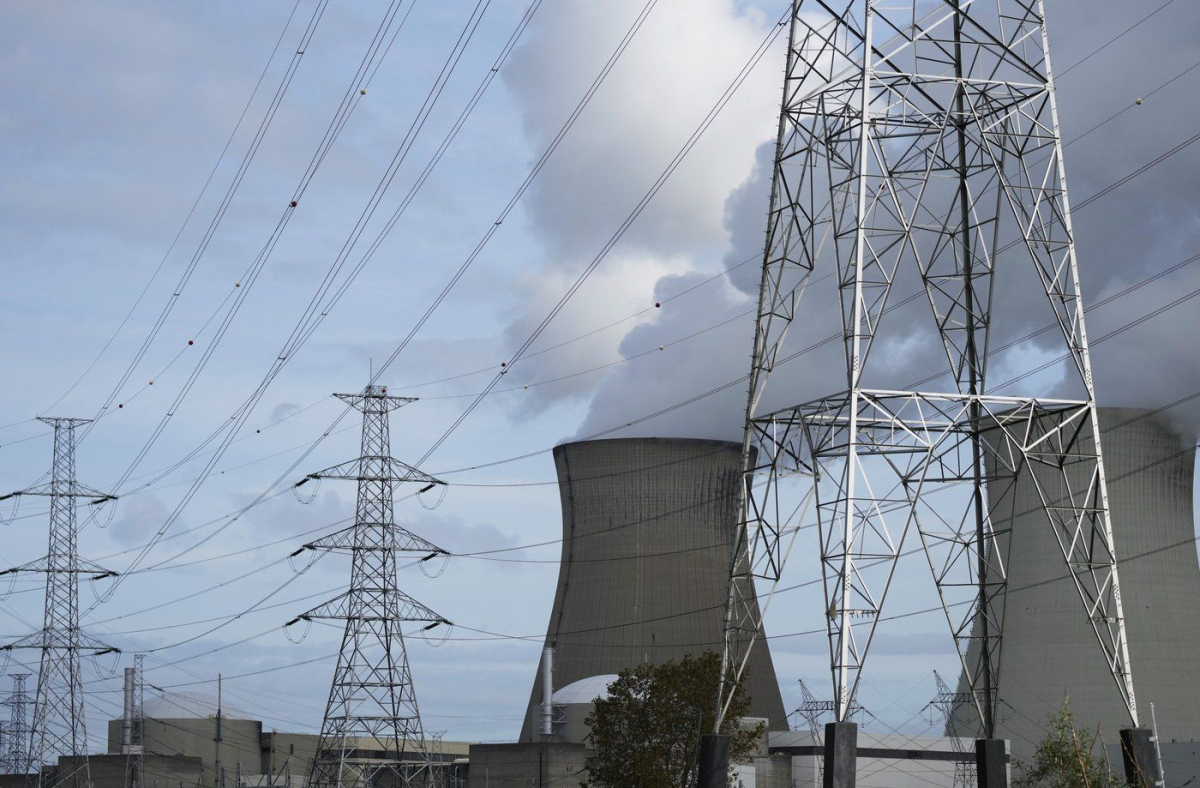Support strong Canadian climate journalism for 2025
In the shadows of a massive monument glorifying nuclear energy, over 30 leaders and delegations from around the world backed the idea to use the controversial energy source to help achieve the goal of a climate-neutral globe while giving more countries an added sense of economic and security independence.
Such a summit would have been unthinkable a dozen years ago in the wake of the 2011 Fukushima nuclear accident in Japan, but a warming planet creating a need to phase out fossil fuels and war in Ukraine laying bare a dependence on Russian energy have turned the tables over the past half decade.
“We have to do everything possible to to facilitate the contribution of nuclear energy,” said Rafael Grossi, the head of the International Atomic Energy Agency. “It is clear: Nuclear is there. It has an important role to play,” he said.

The one-day meeting is held next to the 1958 Atomium, the 102-meter (335-foot) -tall construction of the nine iron atoms, which sought to promote the peaceful use of nuclear energy in the wake of the nuclear bomb explosions at the end of World War II and their use as a geopolitical deterrent ever since.
Fatih Birol, executive director International Energy Agency, tried to reinvigorate that peaceful mission.
“Without the support of nuclear power we have no chance to reach our climate targets on time. Renewables will play the major role in terms of electricity, especially solar supported by wind and hydropower,” Birol said. "But we also need nuclear power especially in those countries where we don’t have major renewable potential.”
“We have to do whatever we can to increase the current nuclear capacity, which is currently only less than 10% of global electricity generation," he said.
In Europe, France is the leader in nuclear energy and accounts for about two-thirds of its overall provisions.
French President Emmanuel Macron said that "thanks to the nuclear model, France is one of the few countries that exports its electricity, which is an opportunity.”
“We should be much more concerned about, for example, CO2 emissions, which have a direct impact on you and me and on our health every day,” he said. “Our priority must be to get out of coal and gas and move towards nuclear power and renewable energy.”
The devastating impact of a nuclear accident, like the 1986 one in Chernobyl, Ukraine, was barely a talking point at the meeting. Outside the meeting, environmental groups sought to highlight the dangers of the technology and convince leaders that renewable energy sources like wind and solar were much more practical and worthwhile.
Building nuclear plants takes many years and projects are often marred by cost and deadline overruns, and environmentalists stressed that point with demonstrations outside the summit center.
“Nuclear, all the evidence shows, is too slow to build. It’s too expensive. Much more expensive than renewables,” said Lorelei Limousin of Greenpeace. “The government must focus on developing renewable energy, energy savings, the real solutions that work for people like home insulation, public transport — not nuclear energy fairy tales.”
Thursday's meeting was to be a strategic planning session without any practical outcome expected.
Associated Press journalists Aleksandar Furtula and Sylvie Corbet contributed.




Comments